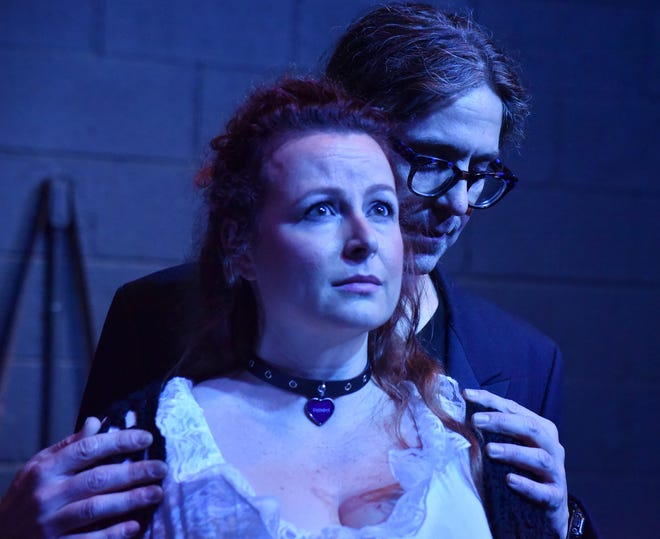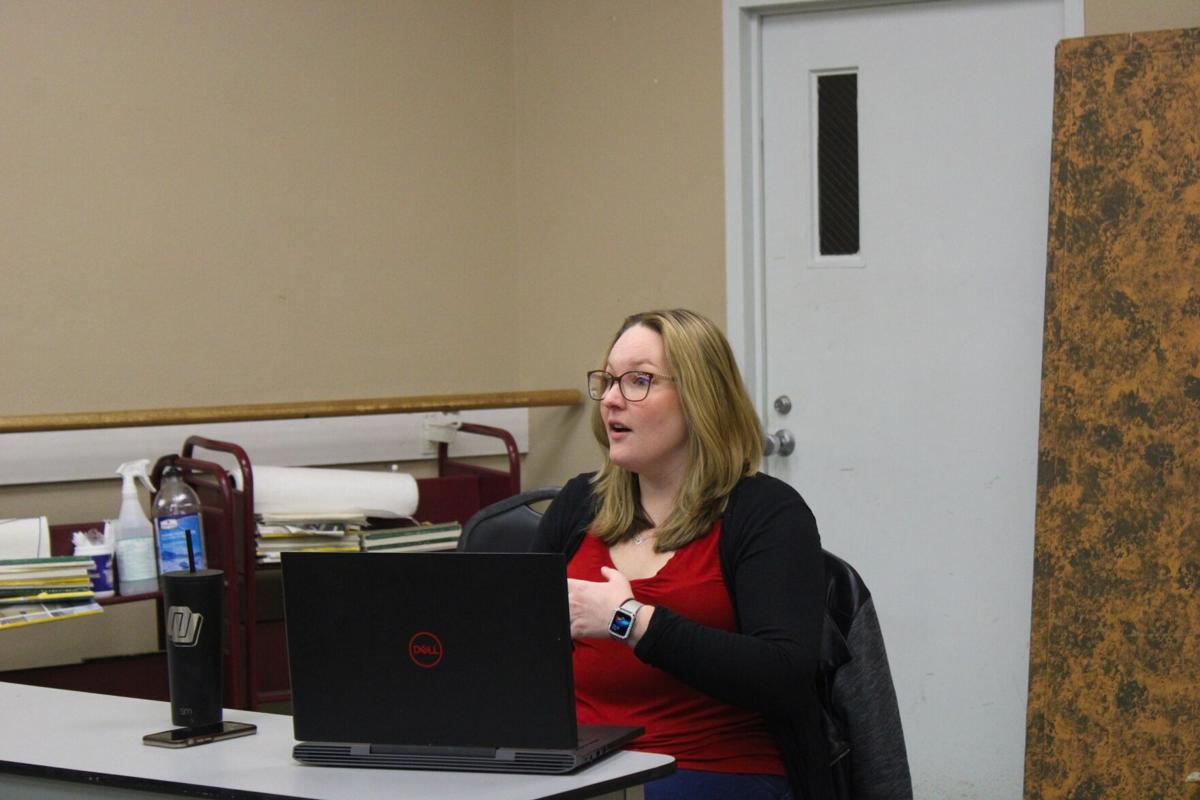

Heartland Intimacy Design & Training

TiPS Course Overview

What is an Intimacy Designer? Prepare for Intimacy on Stage W/ Kate Busselle from Heartland Intimacy

Conversations About Intimacy on Stage Ft Kate Busselle from Heartland Intimacy Part 2
Videos
Podcasts
Strengthening the Silk of our Care Web: A Methodology for Structured and Supported Intimacy Practice by Undergraduate Students in a Collegiate Environment
Theatre Topics
Theatrical intimacy work has increasingly made its way into academic theatre spaces since the explosion of interest in the work in 2017. As a result, undergraduate students are seeking opportunities to start training in the field while pursuing their studies. Sparked by a Facebook post debating the ethics of undergraduate students doing intimacy work, I outline the benefits of creating space for intimacy work and allowing students to practice theatrical intimacy facilitation while still an undergraduate student. Based on my own work at the University of Oklahoma, I offer strategies to mitigate harm in undergraduate facilitation to set students up for success in these scenarios.
The absence of trauma-informed practices in the high school production process: A qualitative study
Youth Theatre Journal
Theatre has the potential to impact students’ mental health, especially when creating and telling stories with traumatic themes. Theatre teachers are uniquely positioned to unintentionally inflict further harm on their students if they do not incorporate trauma-informed practices (TIP) in the work they do in class and in productions. As theatre educators typically do not have special certifications or credentials in mental health, knowing TIP is crucial to help prevent the retraumatization of students who have experienced trauma. This study discusses current practices in the high school production process in the United States and the absence of TIP in theatre teacher training programs and professional development.
Windows into Revolutionary Recovery: Check-Ins, De-Roling, and Debriefing Practices for Rehearsal and Performance
Theatre/Practice: The Online Journal of the Practice/Production Symposium of the Mid-America Theatre Conference
As two intimacy professionals and scholars, we merged our two workshops from the 2022 Mid-America Theatre Conference into one article of tools, games, and activities designed to support performers where we have noticed support has not always been a given. This article is geared toward educators in theatre but the ideas and practices could be applied more broadly to directors, intimacy professionals, and actors in professional or community settings. We offer tools for practitioners to identify when students may need a break and suggestions for what to do to reengage them afterward; we also offer closing practices to create a clear delineation between work and everyday life. Both the check-in and closing practices are particularly useful when working with heightened or charged content but can be useful when working with any play or devised work. The information and suggestions in this article are designed to help leaders in performance spaces respond to everyday stresses and ongoing traumas with the understanding that theatre can be therapeutic, but it is not therapy (unless you are a drama therapist).
The Ethics of Care in Pedagogy and Performance: Intersections with Disability Justice, Intimacy Work, and Theatre of the Oppressed
Journal for Dramatic Theory and Criticism
This article argues that an applied ethics of care practice is central to the work of addressing the patriarchal and racist practices embedded within both professional and educational theatre spaces and their protocols and policies. Many theatre faculty in both the classroom and in rehearsal spaces encounter students' trauma(s), but often lack the tools to adequately guide students down from that trauma once it has been activated. In this article, Kate Busselle, Erin Kaplan, and Samuel Yates theorize what ethics of care in theatre and performances spaces might look like when creating systems and structures to protect students from future harm, address potential trauma in the moment, and mitigate the damage incurred from past experiences. Building from the foundations of feminist ethics of care theorists such as Virginia Held, Lisa Tessman, and Leah Lakshmi Piepzna-Samarasinha, the authors share strategies for establishing ethical care processes to safeguard students in the classroom and in rehearsal spaces.
When the Problem is Personal: Working on Naomi Iizuka’s Good Kids as a Sexual Assault Survivor
The Fight Master: The Journal of the Society of American Fight Directors
This article seeks to critically explore the challenges I faced working as a movement coordinator and violence and intimacy designer on University of Missouri’s recent production of Good Kids while navigating my status as a sexual assault survivor. This article includes the successes and challenges of this production process, as well as the ways other theatre practitioners can navigate a production like Good Kids knowing a collaborator is a survivor of sexual assault. How does disclosing one’s status help or hinder those involved with the production process? How does a sexual assault survivor balance the act of staging a sexual assault without re-traumatization? What productive conversations can occur with actors who are navigating rape culture (and, potentially, sexual assault) themselves? What resources are necessary to navigate this topic in a healthy, productive manner?
De-Roling and Debriefing: Essential Aftercare for Educational Theatre
Theatre Topics
Imagine for a moment that this pandemic year’s stresses were the given circumstances for a role you were playing, perhaps for an acting class. You took on all this emotional turmoil and physical stress in the course of living fully within this world. Then the performance ends. Would you be able to leave that emotional state behind at the drop of a hat? Would you be able to leave the work behind in the space and go about your day or evening unencumbered by the emotional rollercoaster you just took your instrument through? As our society grapples with the challenge of emerging from a period of long stress, we as theatre teachers have the opportunity to renew our attention to the tools we give to student performers to help them shed the extra stresses of living imaginary lives. Such de-roling and debriefing practices, I argue, are essential.
Challenging “Certification”: Revising Hiring Practices in Fight and Intimacy Choreography
Howlround Theatre Commons
Fight director and theatre artist Danielle Rosvally and founder of Heartland Intimacy Design and Training and assistant professor Kate Busselle come together to interrogate the concept of "certification" in fight direction and intimacy coordination by illuminating current training practices, opportunities, and programs in the field.
Invisible Labor in Theatre Academia; or, How Bulbasaur Saved My Summer
Howlround Theatre Commons
Kate Busselle talks about the invisible emotional labor inherent to teaching theatre and how, while leading a six-week summer intensive, she was able to distribute some of that labor and set professional boundaries.


